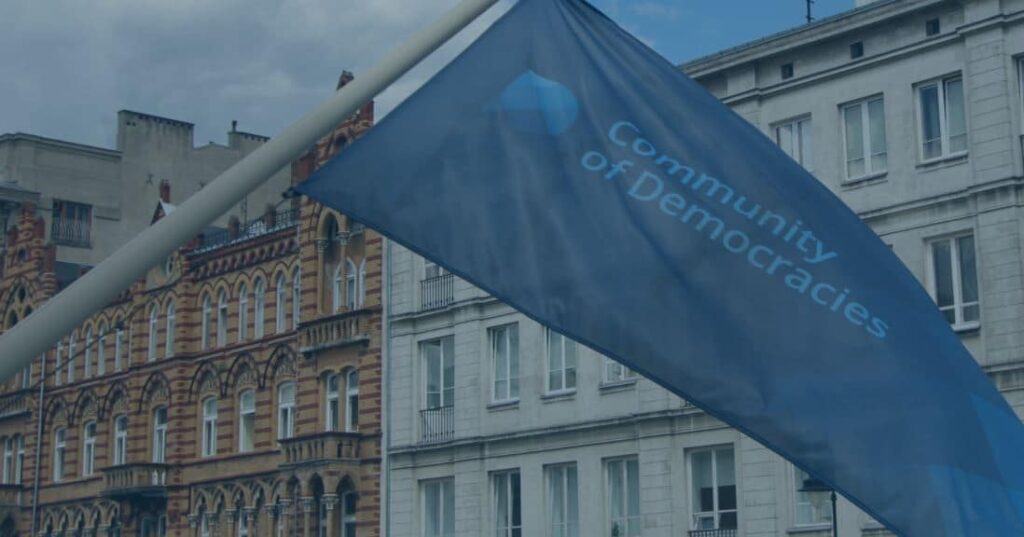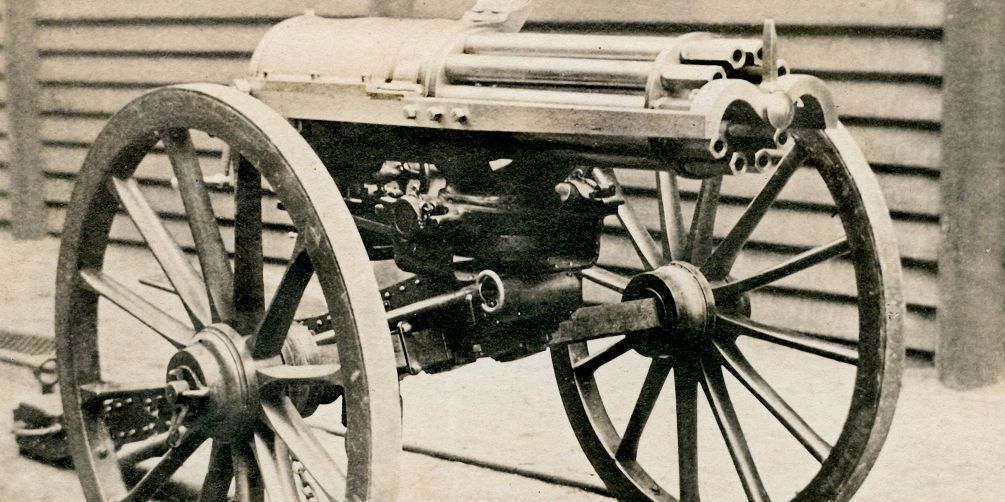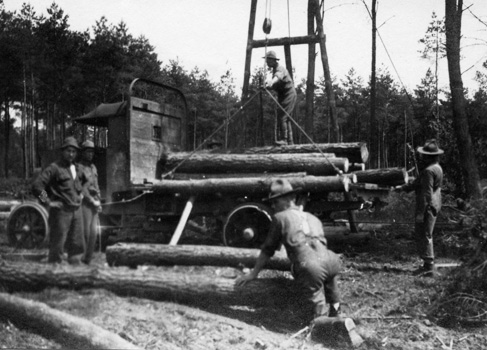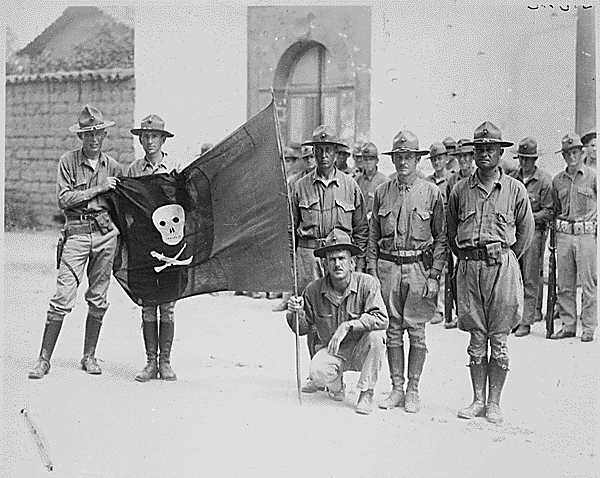The world has a lot of international organizations. The United Nations, the World Health Organization, and NATO being the most well-known. But when it comes to the number of these global organizations — and the number of nations on their rosters — few are as narrow of purpose while being wide in membership as the Community of Democracies, or CoD.
CoD means many different things to many different people. To some, it’s a combat-oriented video game. To others, we know we’re going to have the give the postal worker money when the package arrives. But in this case, we’re talking about the Community of Democracies.
Founded in 2000, the Community of Democracies aims to take “concerted action to advance and protect democratic freedoms, strengthen democratic institutions, and expand political participation.” CoD is an intergovernmental coalition with 31 member states — all of them Democracies. The Community of Democracies is guided by its founding document, the Warsaw Declaration “Toward a Community of Democracies.” With 106 democratic states in attendance, this document was signed on June 27, 2000, thus officially forming the Community of Democracies.
This declaration not only binds the signing states to uphold the agreed-upon principles, but it also establishes and defines the essential norms required for democracy. There are 19 listed and consented principles held within the Warsaw Declaration. Though, honestly, the document is as much about human rights as it is about democracy, which is really to say that the organization is more about promoting human rights through democracy, than vice versa.
“The right of every person to be free from arbitrary arrest or detention,” for example, clearly has no bearing on the political system of the nation wherein a person may be arbitrarily detained. Whereas, “The right of citizens to choose their representatives through regular, free and fair elections,” absolutely does.
Now-former UN Secretary General Kofi Annan once praised the CoD, expressing that the organization — by comparison to the UN itself — was a positive step forward, stating:
“When the United Nations can truly call itself a community of democracies, the Charter’s noble ideals of protecting human rights and promoting ‘social progress in larger freedoms’ will have been brought much closer.”
This comment observing that many member-states of the UN are still continually mired in human rights violations, to say nothing of their stance on democracy.
The CoD has several internal working groups, all of which are topic-focused and action-oriented with regards to the problems and obstacles they work to engage. CoD also has two external bodies with which it consults regularly. One is the Academic Advisory Board, which provides the CoD with an academic perspective, helping the working groups as well as the CoD Governing Council. The other is the Civil Society Pillar.
The Civil Society Pillar includes 26 leaders of civil societies and organizations from around the world. Within the Civil Society Pillar, the International Steering Committee advises CoD member states on enabling civil society in order to strengthen democracy, the rule of law, and the protection of the rights listed in the Warsaw Declaration. It also assists the CoD by coordinating activities (such as forums) that result in recommendations put forth to the CoD, its member states, or the internal working groups.
Anyone who has served in uniform, supported someone in uniform, or voted in an election is well aware of the importance of working to keep democracy safe — fighting for freedom. And although we all know about the United Nations and the work they do, not many of us are aware of the fact that there is a similar, and overlapping organization that struggles for a somewhat stricter view of how universal human rights can be achieved and maintained: through democracy.
Community of Democracies Member Nations
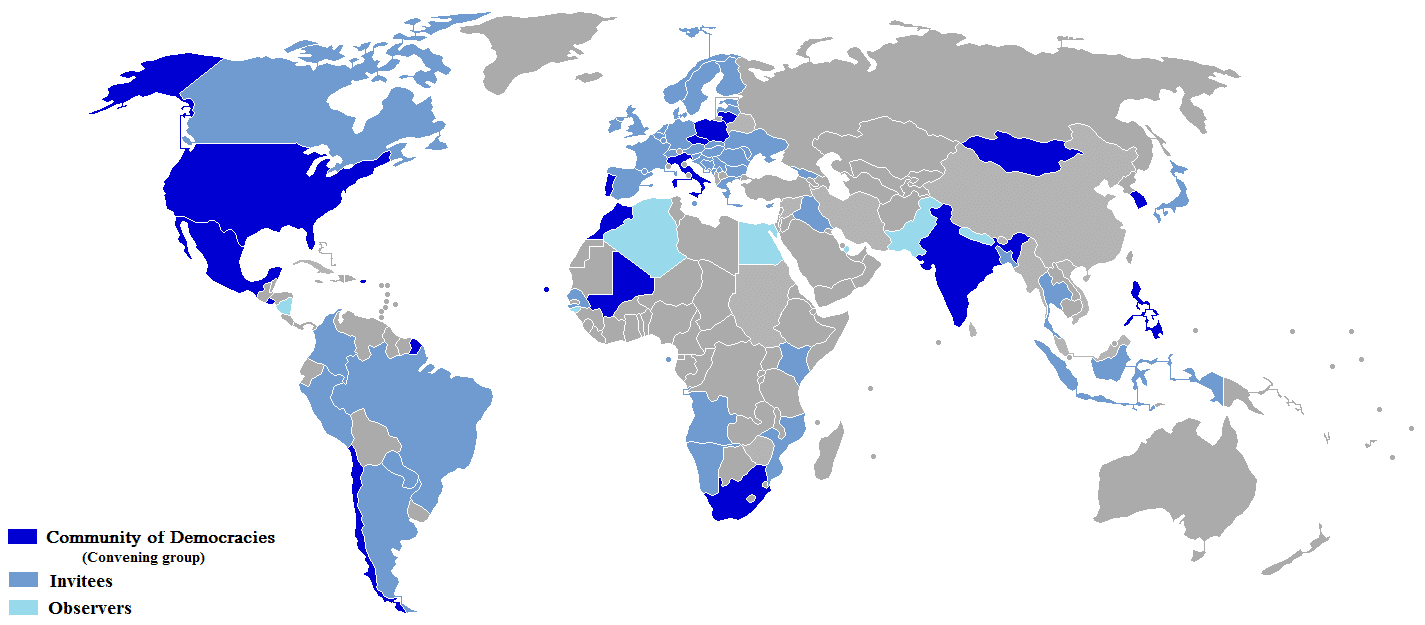
- Argentina
- Canada
- Chile
- Costa Rica
- El Salvador
- Estonia
- Finland
- Georgia
- Guatemala
- Hungary
- India
- Italy
- Japan
- Lithuania
- Mali
- Mexico
- Mongolia
- Morocco
- Norway
- North Macedonia
- Nigeria
- Poland
- Portugal
- Republic of Korea
- Romania, Sweden
- United States of America
- Uruguay
- United Kingdom.
Feature image courtesy of community-democracies.org.
